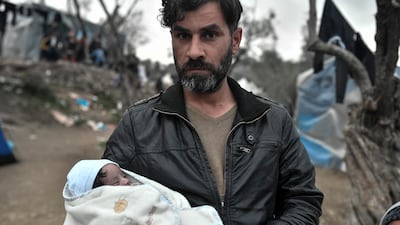A billion people could be infected with Covid-19 and up to 3.2 million die in 34 countries most affected by war and poverty, an international aid agency said on Tuesday.
The International Rescue Committee (IRC) said crowded refugee camps in Syria, Greece and Bangladesh were among the most threatened places as the infection spreads around the world.
The camps are up to 8.5 times more densely populated than the Diamond Princess cruise ship where transmission was up to four times greater than in Wuhan, the source of the coronavirus pandemic, and 13 people died.
Overcrowding at the refugee camps, compounded by poor sanitary conditions and rudimentary health facilities, are likely to see virus reproduction rates far higher than in other countries, the charity said. Aid workers have also seen greater threats and harassment since coronavirus took hold.
“Covid-19 has already overwhelmed health systems in high-income countries. As it spreads to fragile and crisis affected countries, it threatens even greater devastation,” said the US-based charity.
“There is a small window left to mount a robust response while Covid-19 is still in the early stages of spreading to these settings.”
The alarming potential toll in the 34 countries, ranging from 1.7m to 3.2m deaths, was based on numbers from the World Health Organisation and modellers at Imperial College, London.
The countries most at risk include Yemen, facing the world’s worst humanitarian disaster, Syria, Afghanistan, Jordan and Iraq.
The countries lack the financial resources to fund stay-at-home campaigns and the infrastructure and jobs that would allow people to work in isolation from home, said the IRC.
Trading barriers have already slowed the delivery for protective equipment, halted vaccination campaigns and disrupted supplies for malnourished children. Prices for surgical masks have increased six-fold.
The charity called on donors to ensure the most in need get adequate food, medical supplies, money and improved infrastructure to allow for extra handwashing and isolation for affected cases.
David Miliband, chief executive of IRC and former UK foreign minister, said: “These numbers should serve as a wake-up call: the full, devastating and disproportionate weight of this pandemic has yet to be felt in the world’s most fragile and war-torn countries.”


